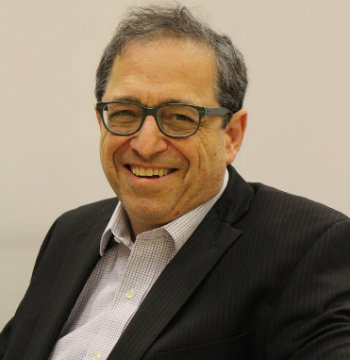
Mark Gross is the founder of Data Conversion Laboratory (DCL), a document conversion company.
Question 1: How do you define “digital strategy”?
“Digital strategy” to me is the approach we take to relate to change, both personally and in business. All around us incredible things are happening with technology that allows us to work more effectively, and cut out some of the cumbersome middle steps that slow things down and get in the way. While personally we do have choice of whether or not to take advantage of technology – read a book on paper or on a “device, use a map app or find our way without it, etc.” – in the corporate world we either innovate with tomorrow’s technology or die, and that technology is digital. “digital strategy” is consciously taking the focused time and energy to make us understand, and plan, how we can incorporate the best of what’s coming down the road to improve what we do and to create the new products and method to serve us and customers in the future.
Question 2: What kind of mobile device(s) do you have, and what are your three favorite apps?
I have an iPhone 4s (and being bugged to upgrade). There’s a lot more than three apps I use, but the ones I use most often are Waze to get me around when I drive, google maps when I’m walking or using public transit, and BestParking for when I’m trying to find reasonably priced parking lots (and Ski Tracks when I’m skiing). It’s ironic that these are all transportation based.
Question 3: What do you think of the emergence of the Chief Digital Officer role?
I think it’s a sign of the times that there is a need in most organizations for more high-level expertise to deal with digital technology. There is so much activity and development today on the digital front, and its so critical to a company survival, that we’re going to see CDO’s and other new c-level positions to deal with technology strategy and implementation.
Question 4: What advice do you have for aspiring digital professionals?
Be ready for change. Flexibility was always important, but never as important as it is today. The rate of change is accelerating constantly. Think of where mobile was 5 years ago. What about drones, medical robots, and so on, in every field of endeavor. The apps on our mobile devices weren’t even in anyone’s imagination 5 years ago. Someone starting their career today will see things they can’t even imagine over the course of their career, and will need to reinvent themselves over and over to be relevant. So my advice is to learn the fundamentals, and find something that excites, but be ready to change course many times.
Question 5: What are the three most significant digital trends that will define 2015?
On the global level issues like cybersecurity, international politics of data, and integration of ecommerce with physical commerce, are all front-seat issues driving rapid changes. In my focused world dealing with data and content, and helping our customers value from the growing data mountains, the significant trends I see are:
- Intelligence and automation in data analysis and mining – we are dealing with volumes of content that were inconceivable even 2-3 years ago, and it’s rapidly increasing. Traditionally conversion and data mining depended heavily on human review, but in many areas it can no longer handle the volume. I see a lot of focus on making processes more intelligent, and more automated, so that extracting and reformulating content from the millions of pages coming is as ‘lights out’ as possible. We are already processing millions of pages ‘lights-on’ and I expect that increase rapidly.
- Technology for images analysis, voice transcription, optical character recognition (OCR) – much important content is not digital, speech needs to be transcribed, images need to be analyzed and OCR’d, and endless video streams need to be ‘viewed’ to find the relevant information. Automating these process is requiring new tools and the development of new technology which will take several years to fully develop, but I’m already seeing advance of the technology coming to market.
- Integration of languages – the expansion of the internet and communications has meant that we are doing business farther and farther afield, and dealing with a multitude of languages is becoming more critical. We already produce content in dozens of languages. For multi-national organization translation, cultural adaptation, and the maintenance of multiple language versions are all becoming major issues, and I expect technology automate some of these process.
For more information on Mark Gross, check him out on LinkedIn. Follow DCL on Twitter (@dclaboratory), or go to www.dclab.com.
